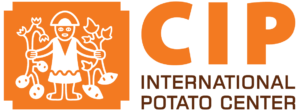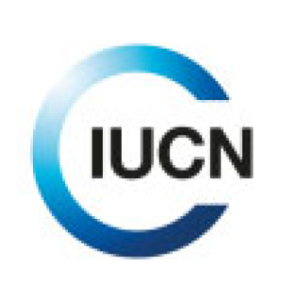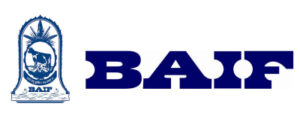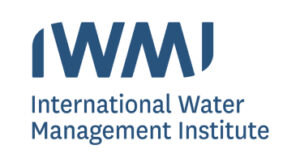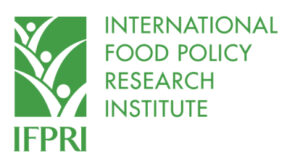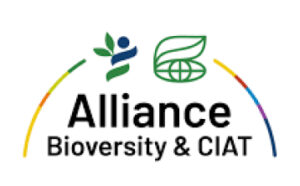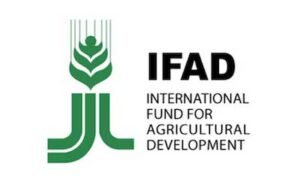Abdoul Aziz Niane
Seed Technologist
ICARDA
Dr. Abdoul Aziz Niane is a seed technologist and rangeland ecologist with more than 30 years of experience in crop management and post-harvest seed operations. Since joining ICARDA in 1987, he has worked on seed production and post-harvest operations with extensive regional activities, including training and technical support on national seed system diversification.
He has led the operation and diversification of seed delivery systems, and implemented rangeland ecosystem monitoring and rehabilitation efforts. Dr. Niane has authored more than 20 peer-reviewed publications. His research interests include basic and applied research on seed science and technology.
He received his Ph.D. in rangeland ecology from Wageningen University in the Netherlands, and a M.Sc. in plant protection from Cukuruva University in Turkey.
Abhijit Behera
Research Officer
IWMI
Abhijit previously served as a Senior Research Fellow at ICAR – Indian Institute of Water Management, Bhubaneswar. He worked on the World Bank supported multistate project Rejuvenating Watershed for Agricultural Resilience through Innovative Development (REWARD). His focus was on managing soil water conservation, crop planning, and improvement of groundwater status.
Alok Sikka
Country Representative
IWMI
Dr Alok K. Sikka is with International Water Management Institute, Delhi Office as IWMI Representative-India since April, 2016. Prior to joining IWMI, he served as Deputy Director General (Natural Resource Management), Indian Council of Agricultural Research (ICAR) and Technical Expert (Watershed Development) (in the rank of Additional Secretary to Govt. of India), National Rainfed Area Authority (NRAA), Planning Commission, Government of India, New Delhi. He was Director of ICAR Research Complex for Eastern Region, Patna and Basin Coordinator for Indo-Gangetic Basin under the CGIAR Challenge Program on Water and Food from 2002-2007. He is Ph. D. in Civil and Environmental Engineering with specialization in Hydrology and Water Resources Engineering from Utah State University, Logan, Utah. Besides working with ICAR for many years at Indian Institute of Soil & Water Conservation, Dehradun and its Research Centres, he was with National Institute of Hydrology, Roorkee; visiting Professor at University of Arizona, Tucson; and Faculty at the Oregon State University, Corvallis, USA. He has more than 251 publications and is recipient of many national awards including Fellow of National Academy of Agricultural Sciences.
Andrea Ghione
Project Leader, Market and Value Chain
Alliance Bioversity International and CIAT
I am a political scientist, an agricultural economist and a political economist with more than twenty years working experience in developing countries as: Project Leader Market and Value Chains for The Alliance of Bioversity International and CIAT (CGIAR) in Kenya, Ethiopia, Congo DR, India, Vietnam and Colombia, Programme Manager of the Italian Agency for Development Cooperation in Burkina Faso, Niger and Ghana, Chief Technical Advisor on Agro-Industrial Development of UNIDO in Ethiopia; Senior Economist of the Italian Agency for Development Cooperation in Ethiopia; NGO country manager, programme and project manager (in Sénégal, Burkina Faso, Mali, Niger, Guinée Conakry, Benin and Burundi); consultant in economic development for international organisations (IFAD in Mauritania), NGOs (in Guiné Bissao and Niger) and private firms (in Ethiopia and Burkina Faso) and lecturer on development finance at the University of Turin (Italy).
I hold a PhD in Economics and Industrial Development Policy from the Universities of Parma and Ferrara (Italy), a MSc in Agricultural Economics from SOAS/University of London (UK) and a MA in Political Sciences from the University of Turin (Italy).
I have significant experience in the design and implementation of industrial and agricultural policies and related interventions that consider the global and national political economy contexts and can enable inclusive and sustainable socio-economic growth in developing countries. To that effect, I have facilitated multistakeholder policy-processes involving governments, donors, civil society organisations, private sector organisations, farmers’ and pastoralists’ organisations at both national and local levels.
I have specific expertise in project management and evaluation, rural and agricultural development, agro-industrial development, agro-biodiversity for food and nutrition, food security and food sovereignty, rural and agricultural finance, and pastoralism.
My mother tongue is Italian, and I am fluent in English, French and Spanish. I am proficient in Microsoft Office, with excellent skills in SPSS.
Avinandan Taron
Researcher - Environmental and Resource Economist
IWMI
Avinandan started his career as an environmental economist in the corporate sector, where he was associated with conducting environmental and social impact assessments, and the pricing of utilities. He started his work in research for development with a postdoctoral opportunity at IWMI. This was followed by a brief stint in academics at the Tata Institute of Social Sciences, India. Prior to rejoining IWMI, he worked as a socioeconomist at the Centre for Agriculture and Bioscience International (CABI), UK, leading projects across south and southeast Asia.
Barbara Vinceti
Senior Scientist
Alliance Bioversity International and CIAT
Barbara Vinceti is an Italian national based in Rome, Italy. Her main areas of focus are the conservation and sustainable use of forest genetic resources, forest landscape restoration and tree seed systems.
Carlo Fadda
Nature-Positive Solutions Initiative Lead
Alliance Bioversity International and CIAT
Carlo Fadda guides the research area in Biodiversity for Food and Agriculture. He oversees a research area with over 100 people, including consultants, support staff and over 45 scientists. His team focuses on four major research areas: agrobiodiversity in production systems, conservation, characterization, and genomics of bananas, forest genetic diversity, and biodiversity-related policy.
Carlo is also leading the global initiative called Nature Positive Solutions, which is part of CGIAR. This trans-disciplinary project promotes sustainable agriculture and nature-positive solutions in five countries: Kenya, Burkina Faso, India, Vietnam, and Colombia. It aims at ensuring food and nutrition security, improved livelihood within planetary boundaries by promoting biodiversity.
With a PhD in Evolutionary Biology, Carlo has always had a deep interest in biodiversity. Initially, his research focused on wild species and understanding the evolutionary processes behind current species distribution. He later expanded his work to include ecological projects, particularly studying outbreaks of rodents’ populations to prevent damage to crops during his post-doc in Tanzania, at the Sokoine University of Agriculture (1998-2001).
Recognizing the need for research that combines natural and human dimensions, Carlo joined an Italian NGO (Centro Internazionale Crocevia, 2001-2004), to coordinate a natural resources management project in Tanzania and Vietnam. It was during a conference organized by Bioversity International, then known as IPGRI, that he decided to join the organization. He spent several years in Vietnam working on managing agrobiodiversity, followed by leading (beginning in 2008) a UNEP-GEF project in Morocco, China, Uganda, and Ecuador, which aimed to reduce pressure from pests and diseases using genetic diversity.
In 2011, Carlo relocated to Nairobi, Kenya, as a senior scientist in genetic diversity. He managed projects in various countries, always emphasizing the significance of agrobiodiversity in production systems. He also played a key role in establishing Bioversity’s office in Ethiopia and leading it between 2015 and 2018. He also represented all country offices in the Senior Management Team.
Carlo’s flagship program, ‘Seeds for Needs,’ focuses on matching genetic diversity to farmers’ requirements and reintegrating material from gene banks into production systems. He strongly believes that the conservation and utilization of genetic resources are intertwined with rural development, livelihoods, and economics.
Throughout his career, Carlo has published over 40 scientific papers, presented at numerous conferences, and contributed to book chapters. He is also an adjunct researcher at Scuola S. Anna Pisa in Italy. Based in Kenya since 2018, Carlo continues to make significant contributions to the field of biodiversity for sustainable agriculture.
Celyne Termote
Africa Team leader - Food Environment and Consumer Behaviour
Alliance Bioversity International and CIAT
I am a scientist with over 15 years of experience with research in development, especially in Sub-Saharan Africa (DRCongo, Benin, Burkina Faso, Kenya, Ethiopia, etc.).
My multidisciplinary work bridges research in ethnobotany, agroecology, sustainable food systems, diet diversity and quality, with strong focus on community-based participatory approaches. I combine this with solid monitoring and evaluation quasi-experimental quantitative designs as well as qualitative work.
As the regional Team leader for Africa in the Food Environment and consumer Behavior research program at the Alliance of Bioversity International, I am leading a team of about 25 staff, consultants and students working on value chains, market integration, study and promotion of neglected and underutilized species (NUS), agrobiodiversity for diet diversity, sustainable food systems, food environments, nutrition education and dietary outcomes. Before starting a scientific career, I served as a development worker in DR Congo where I fully realized my interest in research that is practical, contextualized and adjusted to the needs of the people for it to generate lasting impact on the livelihoods of people. I am holder of a PhD from Ghent University in Belgium with title: ‘wild edible plants in Tshopo District, DR Congo’.
I am a proud mother of 2 beautiful girls and passionate about food, nature, travelling and spending quality time with nice people around.
Chris Kettle
Principal Scientist, Lead Tree Biodiversity for Resilient Landscapes
Alliance Bioversity International and CIAT
Chris Kettle is a transdisciplinary scientist with an extensive background in applying research for development across landscapes in Asia, Latin America, and Africa. With 22 years of experience in landscape restoration and tree-based solutions for sustainable agriculture, Kettle has established a strong reputation as an internationally renowned scientist. His contributions include over 90 peer-reviewed publications and a focus on biodiversity-based solutions, particularly emphasizing the diversity of trees and non-timber forest products as critical, yet underutilized, nature-based solutions for various sustainable development goals. His work is particularly centered on the synergies between climate change mitigation, resilient landscape restoration, and sustainable food systems.
Since August 2017, Kettle has led a large, cross-cutting interdisciplinary research team within the Alliance of Bioversity International and CIAT, which is part of CGIAR. His leadership has focused on the conservation and sustainable use of socio-economically and ecologically important trees and their genetic diversity for multifunctional landscapes. This team emerged from the successful merger of two groups of scientists and senior scientists across the Alliance. In his current role, Kettle manages a multi-million dollar research program spanning Southeast Asia, Latin America, and Africa. From 2017 to 2021, he led the cluster of activities (CoA) Safeguarding Forest Genetic Resources within CGIAR’s Research Program on Forests, Trees, and Agroforestry.
Since 2022, Kettle has been leading the Restore Work-package within the Nature+ OneCGIAR Initiative and working within the Agroecology Initiative. His achievements at the Alliance have been accomplished while working 80% of the time for the Alliance of Bioversity International and CIAT, and maintaining a joint appointment (20%) as Group Leader in the Department of Environmental System Science at ETH Zurich, where he teaches final-year graduate and postgraduate students in Rainforest Ecology and resilient landscapes.
Before joining CGIAR, Kettle served as a full-time tenure Group Leader at ETH Zurich from 2007 to 2022, supervising over 14 PhD students on topics related to the conservation and sustainable management of tropical landscapes. Additionally, he is one of the four founders of the Centre for Fruitful Lands India, a knowledge hub aimed at increasing fruit tree diversity in multi-functional landscapes in India to improve childhood nutrition, and contribute to poverty alleviation, environmental health, and climate mitigation.
Cornelis “Kees” Swaans
Senior Advisor - Climate Change and Development, Climate Action.
Alliance Bioversity International and CIAT
Cornelis (Kees) is an expert on climate change and development with more than 20 years of experience in Africa and Asia. His work has evolved from addressing technical and social challenges in agriculture, health, and natural resource management to integrated (knowledge) management and policy engagement for sustainable development. He has worked as a scientist, project coordinator and program manager for different types of organizations, including universities, international research organizations and NGOs.
Kees joined the Alliance of Bioversity International and CIAT in 2019. He is currently leading the Climate Action work in Asia and is responsible for several projects and programs on (digital) climate advisory and bundled services, including DERISK SE Asia (which will end in 2024) and the CGIAR initiative Asian Mega-Deltas. Together with a team of development professionals, scientists, and consultants, he has been working on national and subnational climate risk profiles and investment plans, as well as the development and scaling of various risk assessment tools and agroclimatic advisory products and other services by taking a user-centered design appraoch. Main focus has been on the Philippines, Vietnam, Cambodia, Laos, Myanmar, Nepal, and Pakistan. He is strongly interested in working across disciplines, making use of both qualitative with quantitative data, and linking the technical with the socio-ecological and political. He is also contributing to the CGIAR iniative Nature-Positive Sollutions, where he acts as a focal point for Vietnam on behalf of the Agrobiodiversity for Food and Agriculture of the Alliance.
Kees is Dutch from origin and earned a PhD from the VU University Amsterdam in Research on Innovation in the Life Sciences and two MSc studies from Wageningen University in respectively Management of Agroecological Knowledge Systems and Plant Pathology. He lives since 2015 in Hanoi, Vietnam with his family.
Deborah Nabuuma
Associate Scientist
Alliance Bioversity International and CIAT
Deborah Nabuuma is a Nutritionist with The Alliance of Bioversity International and CIAT as an Associate Scientist. Her work centers on understanding and enhancing food environments, consumer behavior and dietary intakes to support access, availability, and consumption of healthy diets from sustainable food systems.
Joining The Alliance in 2013, Deborah has attained research experience in Eastern Africa, Southeast Asia and The Pacific in the assessment and improvement of diets; development and implementation of strategies that enhance the utilization of agrobiodiversity; and integration of nutrition in farming and seed system interventions to enhance food security and nutrition outcomes.
Deborah has a PhD in Nutritional Sciences from Stellenbosch University, an MSc in Applied Human Nutrition from Makerere University, and a BSc in Food Science and Technology from Makerere University. She is currently based in Penang, Malaysia.
Before joining the Alliance, Deborah worked as a Graduate Assistant at the School of Food Technology, Nutrition and Bio-engineering, Makerere University where she developed new ready-to-use therapeutic foods formulations and assessed and improved the nutritional functionalities of peanuts and amaranth. Prior, she worked as a nutritionist at the Mwana Mugimu Nutrition Unit, Mulago National Referral Hospital, Uganda.
Diego Naziri
Value Chain/Postharvest Specialist
CIP
Diego Naziri is a value chain and postharvest specialist at the International Potato Center (CIP) and senior research fellow at the Natural Resources Institute (NRI) of the University of Greenwich, UK. Before joining CIP and NRI, he worked at the Centre de Cooperation Internationale en Recherche Agronomique pour le Développement (CIRAD) and at the Italian Agency for Development Cooperation. During his career, Diego has been involved in a wide range of research and consultancy on development opportunities and problems in the agri-food sector of over 20 low- and middle-income countries. His main interest lies in the creation and transfer of knowledge that can contribute to improving smallholder farmer market access and profitability by building appropriate institutions and strengthening linkages among key public and private sector actors of the value chain. He has specific experience in the areas of roots and tubers value chains, marketing, processing, enterprise development and postharvest losses. Diego holds a PhD in Cooperation for Sustainable Development from the University “La Sapienza”, Rome and he is a member of the International Association of Agricultural Economists (IAAE), of the European Association of Agricultural Economists (EAAE) and Teaching Associate Fellow of the UK Higher Education Academy (HEA). Since joining CIP, Diego has coordinated large multi-agency interdisciplinary R&D teams working on RTB crops in Africa and Asia. He is currently based in Vietnam.
Dzifa Agbefu
Innovation Hub Coordinator- International Water Management Institute (IWMI)
IWMI
Ing Dzifa is a circular economy waste management expert with over 8years of working experience. Her core expertise lies in circular economy business implementation and financial modeling, sustainable waste management approaches, innovation systems design and operationalization, capacity building, and stakeholder engagement. These skills collectively enable her to translate intricate project concepts and scientific data into actionable plans, rallying the support of key diverse stakeholders, whiles ensuring scientific rigor. Currently, she is the innovation hub coordinator at IWMI, leading the design, setting up, and continuous operation of the circular bioeconomy innovation hub in Ghana.
Eleonora De Falcis
Agricultural Economist
Alliance Bioversity International and CIAT
Eleonora is an agricultural and trade economist in the research program Biodiversity for Food and Agriculture at the Alliance of Bioversity International and CIAT. Her work focuses on the economic sustainability of on-farm agrobiodiversity conservation, looking at market aspects from local, national, and international perspectives.
Before joining the Alliance, Eleonora worked in academia, the private sector, and international organizations with a focus on trade, including the World Trade Organization and the International Trade Centre.
Her areas of expertise include SMEs, agri-food sector competitiveness, agrobiodiversity, international trade, and sustainable development. She holds a PhD in Agrifood Systems from the Catholic University of the Sacred Heart (Piacenza). Passionate about sustainability, Eleonora is also a GRI Certified Sustainability Professional.
Evert Thomas
Senior Scientist
Alliance Bioversity International and CIAT
Evert Thomas is a Belgian national based in Lima Peru. His main areas of work focus on improving the conservation and sustainable use of forest genetic resources, and their application in tree-based restoration projects in Latin America and the Caribbean by combining different disciplines such as distribution modeling, spatial diversity analysis, population genetics, archaeology, ecology and social sciences. Currently, main activities focus on the development and scaling of spatially explicit online tools to support the design of agroforestry systems (www.cacaodiversity.org) and support the tree-based restoration of degraded areas (D4R; www.diversityforrestoration.org), as well as on improving the characterization of the native diversity of cacao (Theobroma cacao) and Amazon nut (Bertholletia excelsa) genetic resources in the Americas, and strengthening their improved use for tackling multiple challenges (climate change adaptation, bridging the productivity gap, resolving heavy metal contamination in cacao…). During his PhD research, Evert examined the relation between plant diversity and plant usefulness in three indigenous communities in the Bolivian Andes and Amazon. Prior to joining Bioversity International, Evert acted as the Belgian focal point for the Access and Benefit Sharing objective of the Convention on Biological Diversity, which led to the adoption of the Nagoya Protocol during the Belgian presidency of the EU, in which Evert played a very active role.
Francesca Grazioli
Scientist
Alliance Bioversity International and CIAT
Expert and passionate about food systems, performing M&E from projects to policies, an economist with a focus on food security and biodiversity resilience. Geographically focused on sub-Saharan Africa, gastronomically on a global level.
Francis Odhiambo Oduor
Research Fellow - MyFarmTrees
Alliance Bioversity International and CIAT
Francis Odhiambo Oduor is a PhD Candidate at the University of Nairobi and a Research Fellow at the Alliance of Bioversity International and CIAT. He has a Master of Science Degree in Applied Human Nutrition and a Bachelor of Science degree in Food Science, Nutrition and Dietetics, both from the University of Nairobi. Francis’ research interests lie in participatory research approaches to empower communities to improve their diets and livelihoods.
Guillermo Pena Chipatecua
Senior Research Associate
Alliance Bioversity International and CIAT
Environmental project ́s manager (circular economy, bioenergy, small scaled solutions, management and conservation of natural resources). 12+ years of experience as project manager (research, capacitiy building, eco-technology implementation). Freelance lecturer and instructor. Passionate about sustainable habits and basic sanitation alternative solutions.
Jai Rana
Country Representative
Alliance Bioversity International and CIAT
Dr. Jai Rana is Senior Scientist and Country Representative for India office of the Alliance since 2017. He is currently affiliated to the CGIAR Systems Transformation Science Group, Lever 4 on agrobiodiversity and nature + initiative. He holds a Ph.D. in Genetics and Plant Breeding and Post Doctorate in Molecular Plant Breeding.
His area of research primarily focuses on enhancing adaptive management of crop diversity for resilient agriculture and improved livelihoods through strengthening crowd sourcing (putting landraces/ farmers varieties and modern varieties together and allow need based participatory selection), local seed supply systems, establishment of community genebanks, seed fairs, field evaluation trials and demonstrations that enable farmers to benefit from diversity rich solutions.
Kristin Davis
Senior Research Fellow
IFPRI
Dr. Kristin Davis is a Senior Research Fellow in the Natural Resources and Resilience (NRR) Unit at the International Food Policy Research Institute. A U.S. national, Davis joined IFPRI in 2004 as a postdoctoral fellow and is based in South Africa. She is an expert in international agricultural education and extension. She conducts research and strengthening capacity on agricultural extension and education, policy engagement, gender equality and youth inclusion, nature-positive solutions, individual and organizational capacity, and agricultural innovation systems. She has authored over 50 peer-reviewed journal articles, book chapters, and policy briefs. Davis was the architect of the New Extensionist Learning Kit, a set of modules containing core competencies for the global agricultural extension agent.
Lillian Aluso
Research Associate
Alliance Bioversity International and CIAT
Lillian Aluso is a research associate at the Alliance Bioversity International and CIAT, based in Vihiga County, Western Kenya. She coordinates the project “Supporting agroecological transitions in Vihiga County” under the Food Environment and Consumer Behavior as well as activities under the CGIAR Nature Positive Solutions initiative. She holds a Master of Science degree in Nutrition and Rural Development. Her work around informal seed systems including establishment of community seedbanks Western has contributed towards increasing access to wealth of local diverse seeds by smallholder farmers in Western Kenya for improved diets, incomes and livelihoods.
Manoj Kaushal
Cropping System and Soil Scientist
Alliance Bioversity International and CIAT
Manoj Kaushal is a cropping systems and soil health expert. Soil-microbe-crop interactions, below ground microbial diversity, integrated nutrient management systems, soil and plant health, crop protection/ disease management are the major areas of research. Other activities range from basic soil, crop and water management research for climate mitigation and adaption strategies to the advanced techniques such as metagenomics and high throughput sequencing. He has vast experience working and developing low-cost indigenous solutions for improving soil health, sustainable crop production, crop residue/ waste recycling and water management for small scale farmers in tropics and semi-arid zones of Africa and Asia. Currently he is working on Nature based solutions for improving soil health and crop productivity in Africa, Asia and Latin America. He has more than 50 publications in his account including articles in peer-reviewed journals, book, book chapters and others. He also led and contributed to major research projects working with global donors including BMGF, EU and AU.
Mansi Tripathi
Researcher – Resource Recovery and Reuse
IWMI
Mansi worked as a Senior Program Officer at National Institute of Hydrology, Roorkee, India in a DST, GoI-funded project based on resource recovery and circular economy. Prior to that, Mansi worked at National Mission for Clean Ganga (Namami Gange), Delhi, India where she worked as a Research Officer. She has worked extensively in the field and has well-rounded experience in water quality and pollution of freshwater bodies, wastewater recycle & reuse, water security, LCA of STPs and circular economy. Mansi has authored several peer-reviewed publications during her master’s and PhD from IIT Roorkee, India. Currently working as a Researcher -Resource Recovery and Reuse at IWMI based in Delhi since 2022.
Marleni Ramirez
Regional Representative for Central and South America
Alliance Bioversity International and CIAT
Dr. Marleni Ramirez, a Peruvian national, became the Regional Director for The Americas Office of Bioversity International in late 2005. Since 1986, her professional experience has included work in various sectors of international development including capacity development and training, small enterprise development and implementation of agriculturally focused projects. She has worked with universities, the private sector, international organizations and the government. Dr. Ramirez was a Science and Diplomacy Fellow at the U.S. State Department under the patronage of the American Association for the Advancement of Science. During the last decade, she has developed, administered and/or implemented projects in agriculture and conservation of biological diversity. Dr. Ramirez has also studied the use and management of native varieties of minor tubers by peasants in the Peruvian Andes, and has implemented an initiative for complementary conservation in northern Ecuador, with an innovative conservation practices.
Mary Otieno
Coordinator Asia | Tropical Forages Program
Alliance Bioversity International and CIAT
Mary Atieno is the Asia coordinator for the Tropical Forages Program, Alliance of Bioversity International and CIAT. She coordinates various projects and CGIAR initiatives on crop-livestock-based systems in the region. Currently, she is the Vietnam country lead for the Sustainable Animal Productivity for Livelihoods, Nutrition and Gender Inclusion (SAPLING) initiative, and Laos country lead for Sustainable Intensification of Mixed Farming Systems (SI-MFS) Initiative. Mary also leads bilateral projects on forage-based systems assessment, testing and scaling of locally-suited livestock feeds and forages in Southeast Asia.
Her education and research background spans Soil Health, Agronomy, Agricultural Biotechnology and Climate Smart Agriculture, with 7 years experience at the Alliance of Bioversity and CIAT.
Before joining the Tropical Forages Program, she was part of the Common Microbial Biotechnology Platform of the Alliance, and the Climate Action lever where she led activities on Climate-Smart Agriculture and Livestock evaluation and prioritization of sustainable, climate-smart practices for key crops and livestock value chains.
Mary was awarded her Doctor of Philosophy (Agriculture) by The University of Sydney, Australia, in 2018.
Natalia Ortiz Escobar
Business Partner for Research
Alliance Bioversity International and CIAT
Natalia Ortiz is a Biologist with a MSc. Degree in Conservation and Biodiversity from the University of Exeter and studies in Project Management. With 14 years of experience participating in the design, execution and monitoring of projects related to biodiversity conservation and sustainable development, she currently liaises research teams of the Alliance Bioversity & CIAT with partners in LAC Region to increase effectiveness and impact of science-based solutions for food systems.
Rachel Kibui
Communication Consultant
Alliance Bioversity International and CIAT
Rachel Kibui is a Kenyan communication consultant, journalist, and author with over 15 years of experience in writing on agriculture, climate change, and development. As a communication consultant, Rachel leverages her journalistic expertise to support organizations in effectively communicating their messages and amplifying them through both traditional and digital media outlets.
Currently, Rachel is a communication and media consultant at The Alliance of Bioversity and CIAT, supporting the Nature Positive Initiative in Kenya. She has worked with notable organizations including Nation Media Group, EU-UNIDO, EU-NDMA, USAID, and PELUM Kenya.
Her work aims to drive positive change by raising awareness and advocating for solutions to pressing issues in agriculture and development. In 2017, Rachel was recognized by USAID for her contributions to agricultural journalism.
Riina Jalonen
Scientist
Alliance Bioversity International and CIAT
Riina Jalonen joined the Alliance of Bioversity International – CIAT in 2009. In her work, she develops knowledge, technical and institutional capacities for forest and landscape restoration, using interdisciplinary approaches combining ecology, genetics, development and gender studies. She provides technical support to South and Southeast Asian countries in the conservation and management of forest genetic diversity through the Asia Pacific Forest Genetic Resources Programme (APFORGEN, www.apforgen.org). She has a versatile background with PhD in Forest Sciences, MA in Educational Leadership and Management, and BSc in Development studies.
Ronnie Vernooy
Rural Development Sociologist
Alliance Bioversity International and CIAT
Ronnie Vernooy is a rural development sociologist with a particular interest in agricultural biodiversity and natural resource management. He has more than 20 years of experience in managing and conducting participatory research in a number of countries, including Nicaragua, Cuba, Honduras, China and Mongolia.
He has coauthored and coedited several books and articles on biodiversity management and conservation; most recently, with Manuel Ruiz, The Custodians of Biodiversity: Sharing Access and Benefits of Genetic Resources.
Sean Matteson
Global Communications Officer
Alliance Bioversity International and CIAT
Sean Mattson has worked in international journalism and science communication since 1999. Before joining the Alliance of Bioversity International and CIAT as Global Communications Officer in 2018, Sean worked as a science writer and photographer at the Smithsonian Tropical Research Institute in Panama. He previously worked as a newspaper and newswire correspondent in Mexico and Central America.
Smitha Krishnan
Scientist
Alliance Bioversity International and CIAT
Smitha Krishnan is a scientist (Agrobiodiversity and Ecosystem services) at The Alliance of Bioversity and CIAT since 2019. Her research interests broadly include pollination biology, plant-animal interactions, restoration, soil-plant relationships, and sustainable livelihoods. Smitha has a PhD from the Swiss Federal Institute of Technology (ETH, Zurich), where she undertook research on pollination services and coffee production in a forested landscape mosaic, in Western Ghats, a biodiversity hotspot. Currently, in addition to working on projects on agroecology, pollination services, nature-based solutions and fruit trees, she is also coordinating the development of Diversity for restoration tool, a decision support tool for tree-based restoration or planting activities for India.
You may access her publications and details here: https://www.researchgate.net/profile/Smitha-Krishnan-3/research and www.linkedin.com/in/smitha-krishnan-629135158
Solomie Gebrezghaber
Nature-Positive Solutions Initiative Co-Lead
IWMI
Dr. Solomie Gebrezgabher is a senior researcher with the Integrated Circular Economy Transformation (ICET) research group of the International Water Management Institute (IWMI). With a background in Business Economics, her work focuses on developing business models and decision support systems for circular economy (CE) technological solutions. Her research includes assessing the economic, social and environmental sustainability of CE business models and assessing the investment climate for private sector investment in circular economy businesses.
Stef De Haan
Senior scientist on Andean Food Systems
CIP
Stef de Haan has 25 years of experience in agricultural R&D with emphasis on community-level mapping of climate change impacts, agrobiodiversity, land use, food systems, and human nutrition in mountain regions and vulnerable communities. Stef works for the International Potato Center (CIP) and coordinates the Andean Initiative with emphasis on agrobiodiversity conservation and use, participatory climate action, and sustainable food systems. He previously worked with the Dutch development cooperation in the Andean region, International Potato Center in Peru, and International Center for Tropical Agriculture in Vietnam. He holds a PhD in biosystematics and an MSc in agroecology from Wageningen University.
